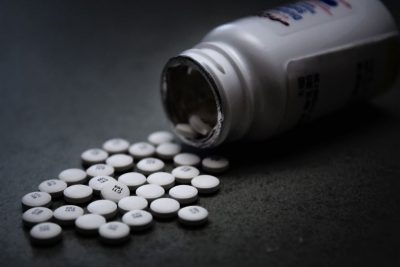
Opioid-related overdose deaths in Massachusetts decreased by 4 percent from 2017 to 2018, according to a Feb. 13 report by the Massachusetts Department of Public Health.
This is the second consecutive year the state saw a decline in opioid-related overdose deaths, with a 2 percent decrease between 2016 and 2017. Overall, opioid-related deaths have decreased in the Commonwealth by 6 percent in the last two years.
Boston saw a nearly 12 percent increase in opioid-related overdose deaths from 2016 to 2017, and City Emergency Medical Services data shows this trend continuing through 2018, according to Robert Goldstein, a spokesperson for the Boston Public Health Commission.
State DPH Commissioner Monica Bharel said in an email statement that collaboration among the state, community health partners and organizations has contributed to the decrease in overdose deaths.
Bharel said the DPH has been educating drug prescribers and expanded access to naloxone, a drug that reverses the effects of an opioid overdose. She also said the organization has launched campaigns to raise awareness about substance use disorder.
“We’ve taken addiction out of the shadows and kept the spotlight on this disease in a way that I think has helped bend the curve,” Bharel said in the statement.
Goldstein wrote that the City of Boston has helped to combat the opioid epidemic by devoting more than $60 million toward recovery efforts since 2014. The City also filed a lawsuit against 13 opioid manufacturers, four distributors and one doctor in September.
“The City of Boston operates a number of services through the Boston Public Health Commission and the Mayor’s Office of Recovery Services that provide support across the continuum of care to those living with substance abuse disorder,” Goldstein wrote.
Daniel Aldrich, a political science professor at Northeastern University, wrote in an email that the statewide decrease in opioid overdose deaths can be explained by an increase in public attention regarding the opioid epidemic.
Alrich wrote that more police officers, health workers and bystanders carrying the overdose-reversing drug narcan has helped save lives.
“There is a broader public awareness of the possibility of deaths from drugs like fentanyl which may be linked to larger numbers of 911 calls from individuals and their families seeking medical [help] during a potential overdose,” he wrote.
Francesca Grippa, a faculty member in Northeastern University’s Global Resilience Institute, said she has been working with Aldrich on a project that combines opioid use data with community outreach, which she hopes will offer a more comprehensive understanding of the issues that hinder overdose-reduction efforts.
Grippa wrote in a later email that a study conducted by Northeastern professor Cordula Robinson found strong correlations between pharmacies carrying naloxone and overdose survival rates. The study showed that 73 percent of Massachusetts residents who died of fentanyl-related causes lived more than a five-minute walk from easily accessible naloxone kits.
Poorly run addiction recovery services do not do a good enough job of ensuring that their clients stay away from drugs such as opioids, Grippa said.
“Some of the houses are just another place for people to go and do drugs and exchange drugs for sex,” she said. “There’s a lot of money going through the wrong places. So there’s a need to put more resources there, and there’s a need for the community to understand.”
Yenifer Parada, 30, of Allston, said she thinks there is a lack of information about overdoses available in Boston.
“If deaths are going down, of course that’s positive,” Parada said. “They should provide more advertisements about these issues in public places.”
Mary Washburn, 23, of Brighton, said she thinks it is good that trends of opioid-related deaths are falling, but thinks there is more work to be done on the issue.
“I think the government should definitely focus more on treatment instead of preventing [drug] trafficking,” she said. “Both are very important, but focusing too much on one doesn’t really solve the problem.”
Justine Morgan, 21, of Roxbury, said she thinks it is positive that opioid-related deaths in the state are decreasing.
“I know the state of Massachusetts has one of the biggest drug-related issues, so it’s good that it’s going down, but it’s still an ongoing issue,” Morgan said.
Joel Lau contributed to the reporting of this story.
















































































































